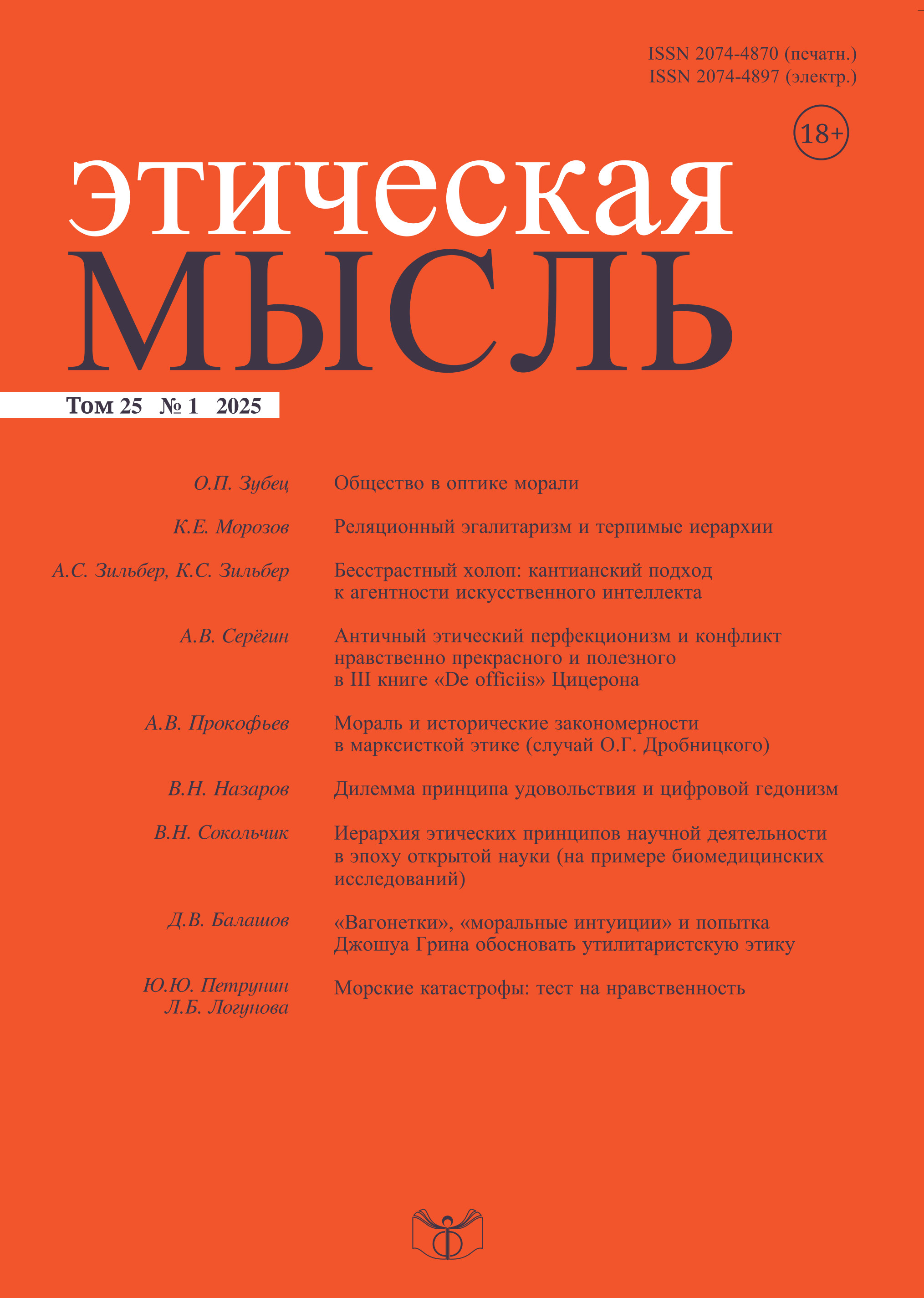Society in the Eye of Moral Philosophy
DOI:
https://doi.org/10.21146/2074-4870-2025-25-1-5-21Keywords:
moral philosophy, morality, act, self-sufficient, self-legislative, virtuous person, citizen, society, polis, ostracism, Aristotle, EmersonAbstract
The article makes an attempt to understand how society is seen from the inside of moral philosophy, in contrast to the sociological and political science view, that is, how it is seen by an acting person: self-sufficient, autonomous, taking a decision. Society is generated by their action, is a space of friendship, it is needed by being themself in action – this is how Aristotle sees the ideal polis in the “Nicomachean Ethics”, but in “Politics” he shows that within society there is no place for the best, the most virtuous, the self-legislating person: he is ostracized or, what should be, is a king. Aristotle also raises the question of the difference between the virtues of a good person and a good citizen, and, further, which life deserves preference: uniting in the polis or outside the polis communication. Since the community of people is given to a person through ideas and institutions, the affirmation of oneself as a self-sufficient beginning of action presupposes the rejection and the re-assignment of society by a person, domineering through self-reliance – this is how R. Emerson solves the problem of morality and sociality. The exceptional ability of morality to resist socialization (H. Arendt, A.A. Zinoviev), to see an action as an extra-historical and extra-cultural one, not mediated by moral ideology, means its fundamental incompatibility with all social institutions. The problem of the relationship between morality and sociality is not only a cross-cutting theme in the history of ethics, but a kind of core of moral philosophy; its solution determines the very concept of morality.









